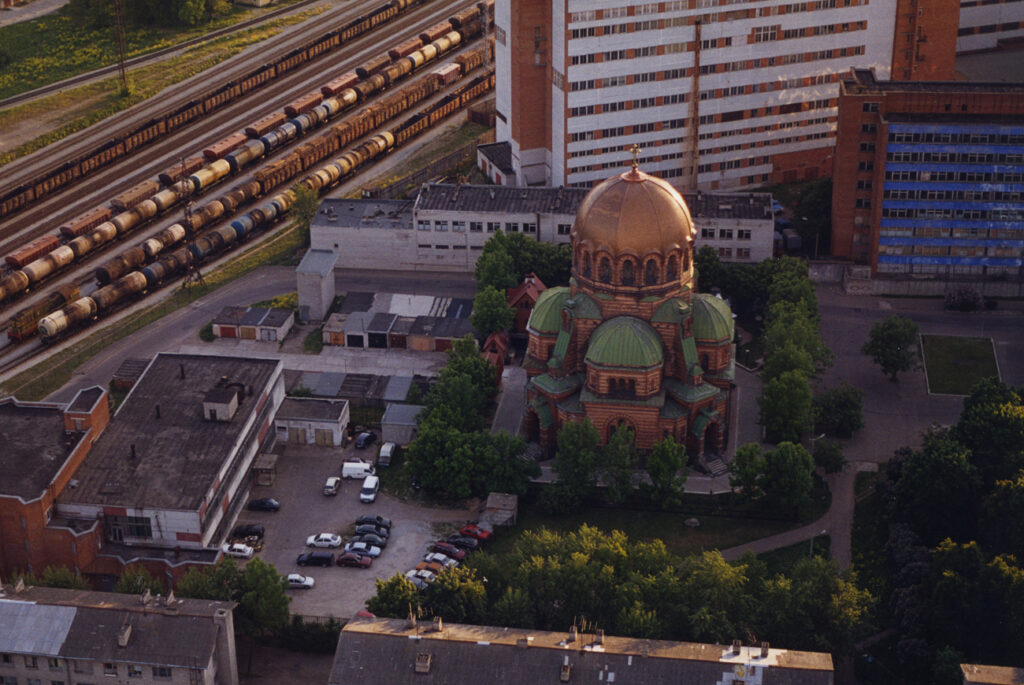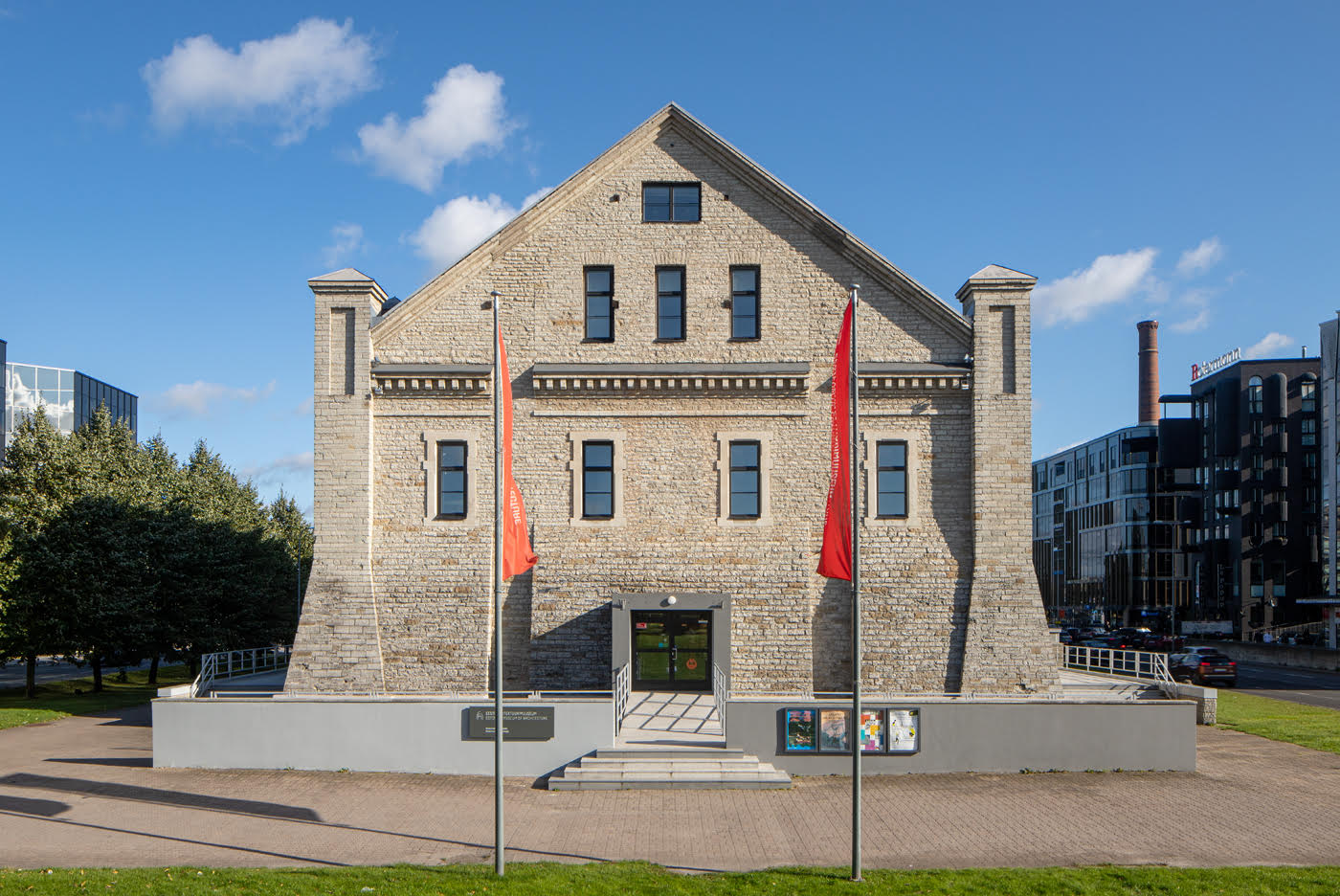Cathedral of the Resurrection of Christ in Narva, aerial photographer Endel Grensmann
Cathedral of the Resurrection of Christ in Narva
Harsh reality: The Cathedral of the Resurrection of Christ in Narva designed by Paul Alisch in 1896 is the only neo-Byzantine religious building in Estonia – here seen in its Soviet context of dishonour. Before the war, the grand building stood in the now non-existent district of Joaoru in line with Alexander’s Cathedral creating an impressive architectural ensemble. Kiriku tänav (Church Street), which once connected the two churches, was however, filled with apartment blocks after the war. The 2002 photograph by aerial photographer Endel Grensmann was purchased by the museum for its collection in 2003. Text: Jarmo Kauge
-
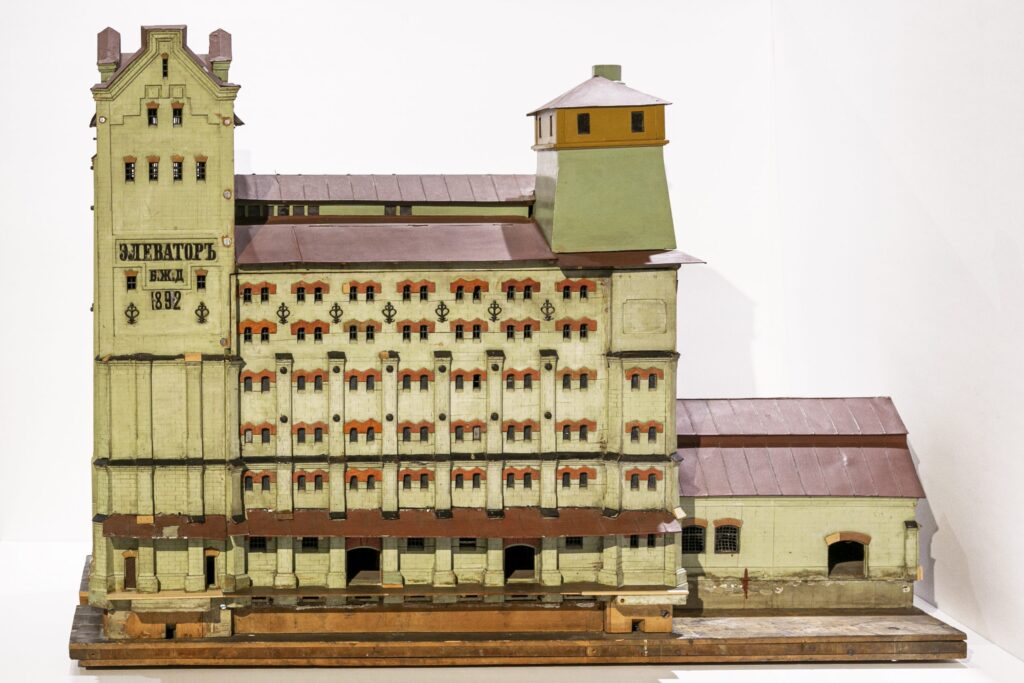
-
Model of the grain elevator in Tallinn harbour, 1899
-
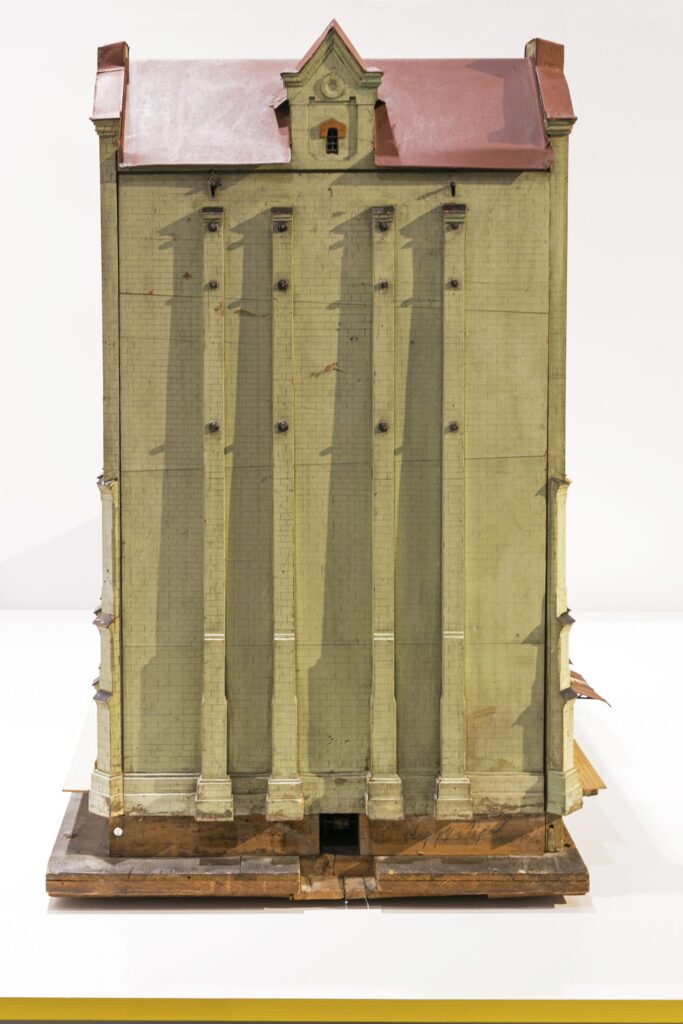
-
Tallinn harbour grain elevator, side view of model, 1899
-
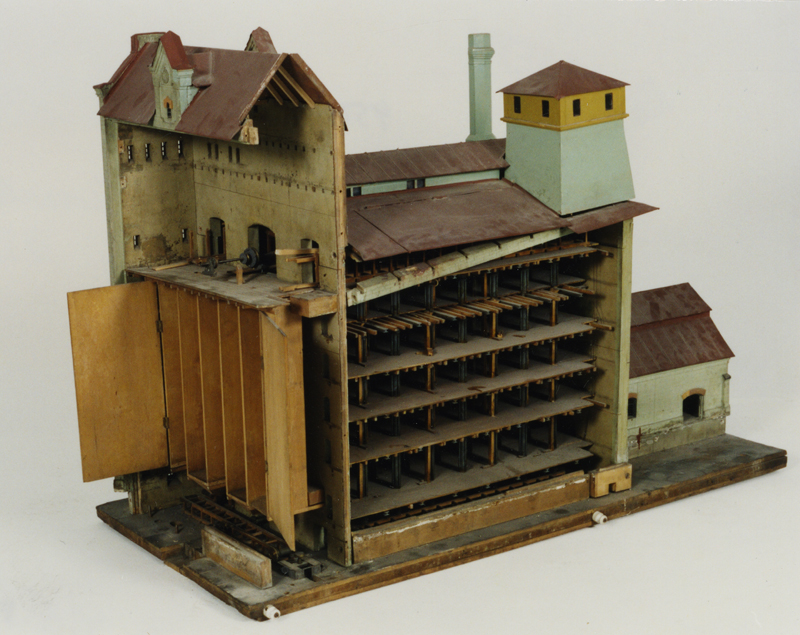
-
Tallinn harbour grain elevator
-
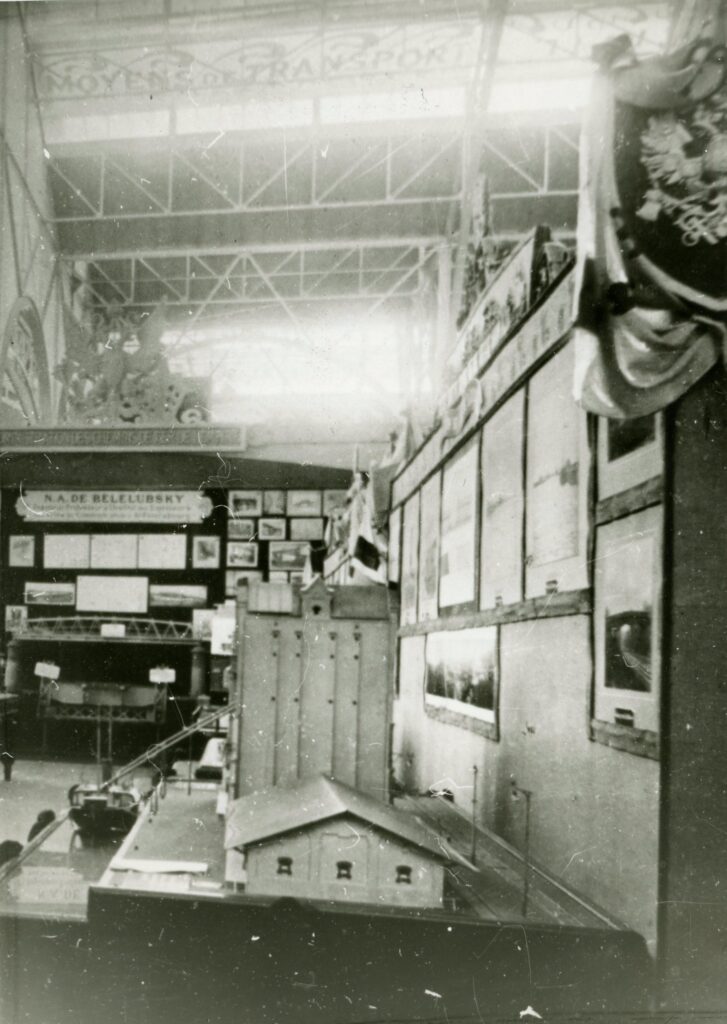
-
Model exhibited at the Paris Exposition Universelle, 1900
-
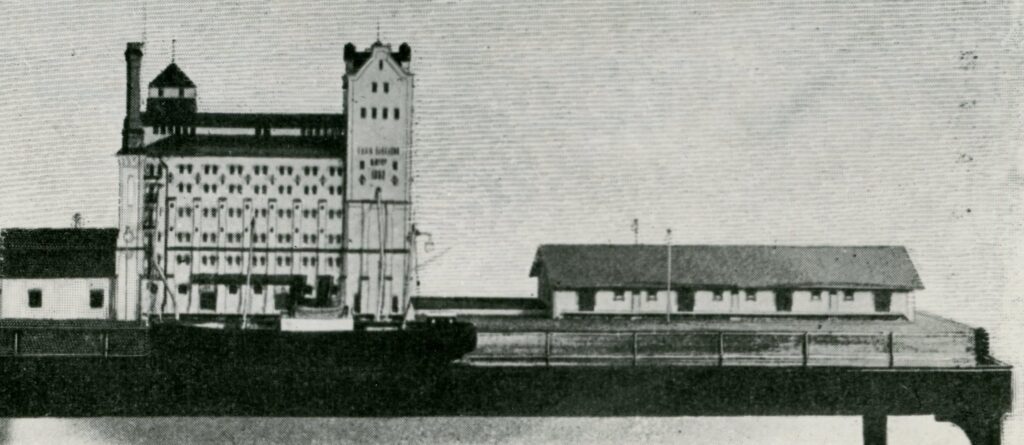
-
In the catalogue of the Ministry of Roads Museum, 1902
Anton Klevchshinsky, Feodor Yenakiyev, 1892–1893. Scale model: J. Kangro, K. Asik (woodwork), Krasimoshev, O. Sakker (metalwork), 1899. EAM MK 61
EAM 30 / Tiny tour of models: Tallinn harbour grain elevator
In 1893, a huge 6-storey limestone grain elevator with a 30-metre tower was completed on Viktoria quay at the harbour in Tallinn. At the time it was one of the largest and most modern in tsarist Russia, holding more than 3,000 tons of grain that could be mechanically loaded directly from wagons to ships. The elevator was designed by architect and academic Anton Klevchshinsky and engineer Feodor Yenakiyev, both from St Petersburg. A model of the building was completed in 1899 and was shown a year later at the 1900 Paris Exposition. The model is extremely detailed, there are various mechanisms in the interior that were originally able to move. The scale model’s journey to the Museum of Estonian Architecture has been a long one. After the exposition in Paris it was given to the Museum of the Ministry of Transport in St Petersburg. In 1971, the model came to Estonia and for 30 years was on display at the Railway Museum in the main building of Baltic Station. From there it found its way to the Estonian History Museum which, in 2000, donated the model to the Estonian Museum of Architecture. The model was restored by Kanut restorers. Text: Anne Lass




